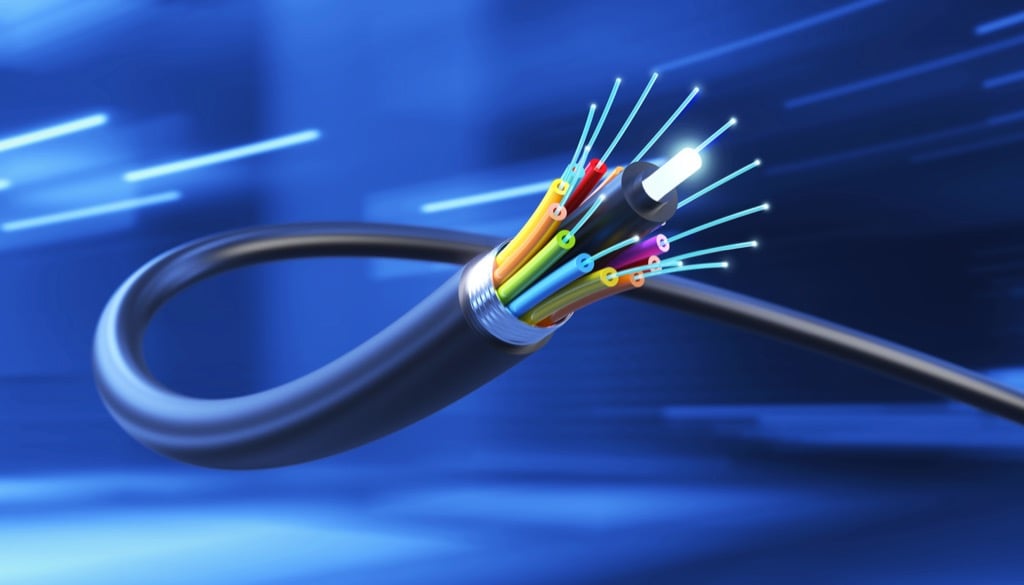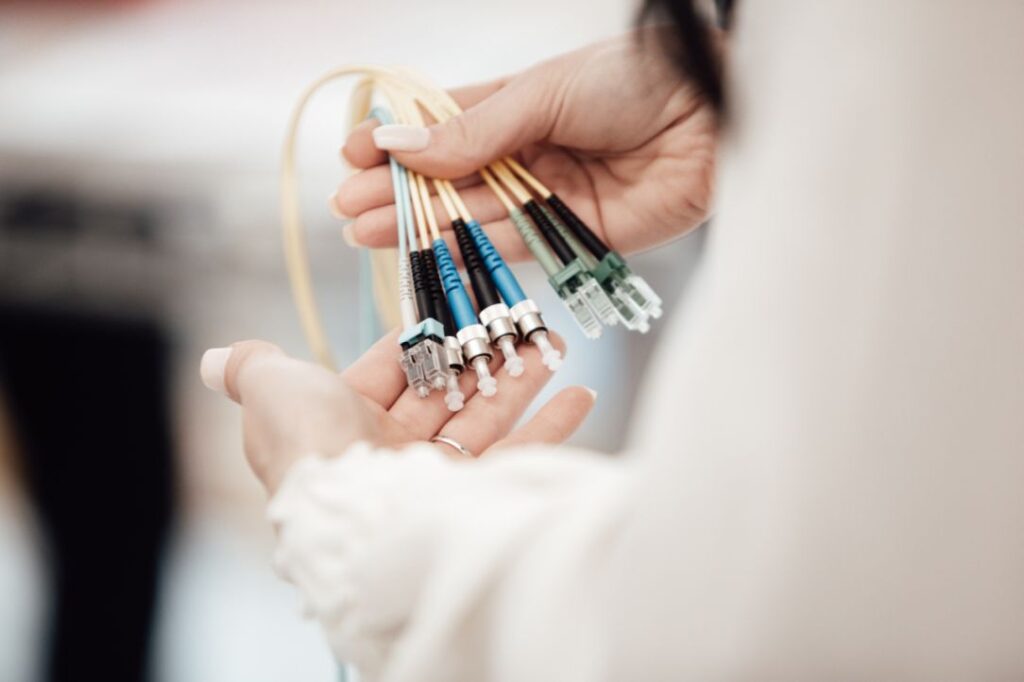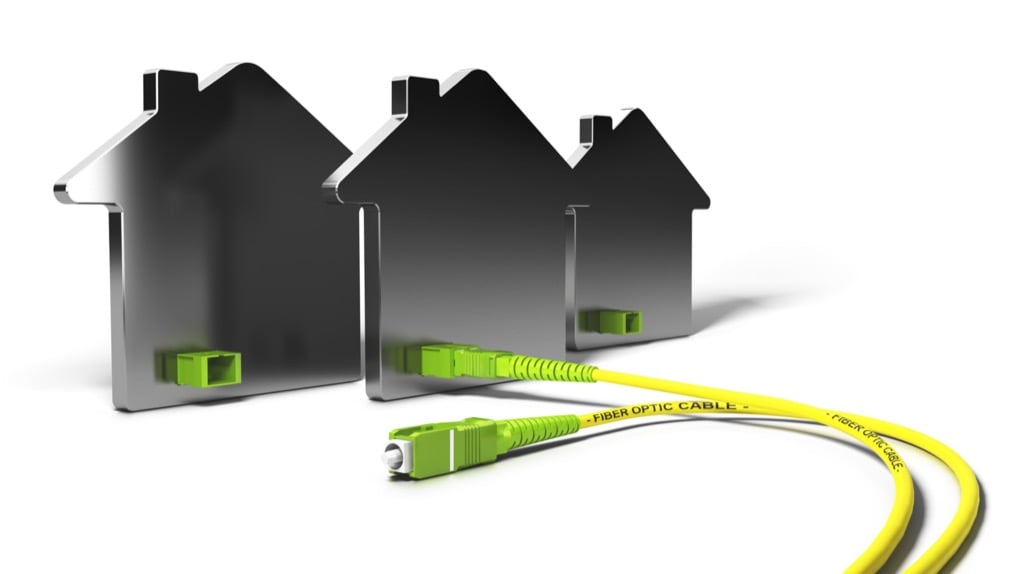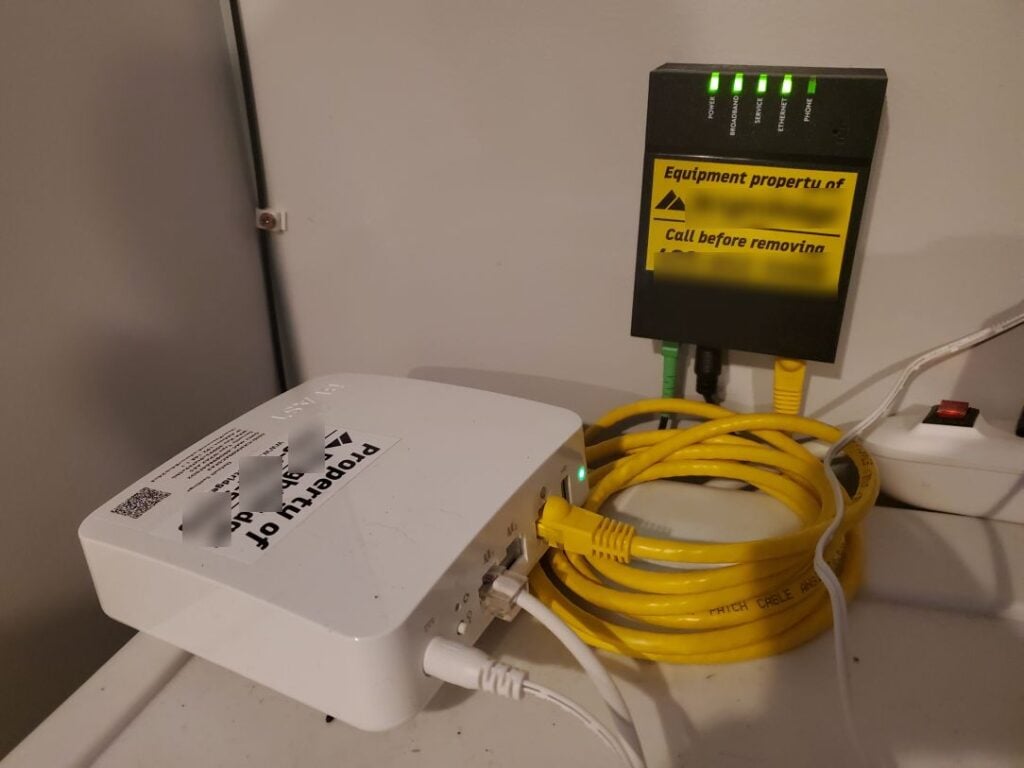Fiber internet used to be a fringe high-speed internet technology only accessible to big companies or anyone living in large cities. However, more recently, fiber networks are reaching rural areas. In fact, you might have received phone calls or you’ve seen ads about fiber being available in your area.
But what is fiber internet? Is it worth switching over from your trusted cable internet to this newfangled fiber internet technology? In this article, you’ll learn everything you need to know about broadband fiber internet so that you can make the decision for yourself.
DSL Vs. Cable Vs. Fiber
The internet is, in very simple terms, the transfer of information over wires from one computer to another. That information is made up of very small snippets of code made up of ones and zeroes (on and off signals). Think of it as morse code using a light switch.
Transferring that “code” over wires is what makes the internet work. The difference between all of the different types of internet services is only how those ones and zeroes get transmitted.
- Dial-Up: In the earliest days of the internet, the internet sent audio signals that represented data, over copper phone lines. If you picked up a phone while someone in your house was online, you would hear what sounded like static. That “static” was the sound of data transmission of those ones and zeros.
- DSL (Digital Subscriber Line): While “sound” over phone wires was the analog internet solution, the digital solution was DSL internet. Using the same copper wire phone lines, companies figured out how to transmit ON or OFF electrical signals to transmit web pages and other internet data over phone lines at faster speeds.
- Cable: Cable providers figured out how to transmit internet signals over their large coaxial cables, a technology that allowed the information to transmit much faster. The difference between a coaxial cable internet speed and a DSL phone connection is at least double the speed.
- Fiber: Fiber internet was a game changer because instead of copper cables, fiber cables are hair-thin fibers encased in a thick insulator (cable). Fiber-optic cables allow ON and OFF internet signals to be transmitted literally as light (like our light switch example). However, since light travels at…well…the speed of light, no other technology can compare to it in terms of speed. Fiber is usually up to 10 times faster than cable internet.
What Is Fiber Internet?
Before you take the leap and switch over to a broadband fiber internet provider, you may want to understand the technology a little better. Let’s take a look at how fiber internet technology works.
Fiber optic network cables look very different than regular metallic cables. They’re made up of glass fibers that can transmit light over very long distances.
While metal cables like cable coaxial struggle to transmit information at 10 Mbps (80 times faster than a metal “twisted-pair” cable), fiber lines can transmit information at up to 2 Gbps.
Putting that into perspective: The internet is estimated to be about 1 million exabytes of data. 1 exabyte is 1 billion billion bytes. So the vast internet takes up 1 million billion, billion bytes.
Let’s say we did an experiment and tried to transmit the entire internet over a coaxial cable, versus a fiber cable.
- Coaxial (Cable): It would take just over 253.5 billion years to transfer the entire internet over a cable line.
- Fiber (Light): It would take just over 253.5 million years to transfer the entire internet over fiber.
That means, when fiber is finished transferring the entire internet, anyone with cable would be waiting around another 253.2 billion years before catching up.
Is Fiber Internet Better for You?
This is a fun thought experiment, but will this actually benefit you in your normal daily life? Let’s look at common activities and see how much better fiber internet will serve you.
- 2 hour HD movie (3 gigabytes): Cable (a 100 Mbps connection) would take about 5 minutes to download that movie. Fiber (at 1 Gigabit per second) would only take about 25 seconds.
- 4 minute song (3 megabytes): Cable would take 0.3 seconds, and fiber would take 0.03 seconds.
- 9 hour audiobook (110 megabytes): Cable would take 9.2 seconds, while fiber would take 0.9 seconds.
While these fast speed increases may be useful for you, think about the other ways your internet bandwidth eventually gets clogged up in your household or neighborhood.
- One person in the household is playing an online multiplayer game, while someone else is trying to stream a movie.
- During holidays, multiple households in one neighborhood are all trying to stream holiday movies.
- One computer in your house is attempting to download Windows updates, a smart home device is automatically downloading new firmware, and you’re trying to watch an HD movie on Netflix.
There are many scenarios for most internet users where multiple streams of data are going on at once. Eventually, your cable internet bandwidth will hit its limit far before a fiber internet connection ever would.
Note: There are two major benefits of a fiber internet connection with higher speeds. One is that you have a dedicated line of data to the Internet Service Provider. You aren’t sharing a single cable line with others in your neighborhood, so your internet speed won’t be influenced by their internet use. The second is that download speeds are typically the same as upload speeds, unlike cable which throttles back uploads.
Is Fiber Internet Worth the Cost?
If all of the information above has you convinced that fiber optic internet would be a huge improvement for your work and entertainment experience, you might be wondering how much it all costs.
Thankfully, the cost of fiber internet has dropped significantly in recent years. Companies outside of the cable TV marketplace have entered the game. These days, telephone companies like AT&T and power companies are offering fiber internet in different neighborhoods.
Because the ISP marketplace is so competitive, you’ll be hard-pressed to find prices online. However, as of this writing, a 10 Mbps connection with a company like Comcast/Xfinity may start with an “intro” offer at $49/mo, but typically will revert to a standard price of $69/mo. You will also have to pay roughly $5 to $10 on top of that to rent the router.
For just about the same price (with equipment included) most companies offering fiber plans will install the fiber router and run the fiber connection to the port on the fiber modem. Most companies will also include a Wi-Fi router for your in-home network.
This means for roughly the normal (not the short-lived “offers” cable companies offer up-front) price of a 10 Mbps cable internet subscription, you could enjoy fiber speeds of 500 Mbps with a fiber internet connection.
If you’re willing to pay a little more for your internet access, you could even have a 1 Gbps fiber internet connection.
Should You Upgrade to Fiber Internet?
By this point, you’ve probably made the decision that the benefits of fiber internet are well worth the cost. However, the only real limitation these days is geography. Fiber internet lines are not available for installation everywhere in the world.
Many companies offer fiber internet plans. The only way to know if these internet options are available yet in your area is to check with each provider, which can be tedious. A better approach is to check with highspeedinternet.com, which checks with all of the major providers for you.
If fiber internet is available in your neighborhood, it’s probably about time to make the plunge and switch. So much of the internet is now all about streaming HD content and high-speed gaming. You really don’t want to be left behind with an outdated coax cable internet connection that can’t keep up.



